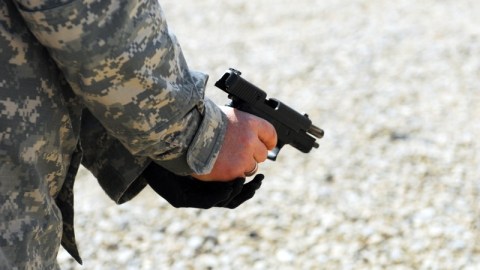The Garbage in David Finkel’s Superb Iraq Book

The Good Soldiers is nearly unbearable. Relentlessly so. Commendably so. Whether you’re a combat veteran, a soldier’s mom, an Iraqi, the 43rd U.S. president, an ordinary American, or some pundit who likes to make bold, loud, baseless, unshakeable declarations about the glory or evil of war, reporter David Finkel’s intimate chronicle of the troop surge in Iraq could — and should — anguish you. I won’t even try to replicate the book’s impact. Instead, let’s just look at a telling passage about garbage in eastern Baghdad.
The passage about garbage interests me because it fits with the overall aim of this blog. It’s a look at one — just one — of the small details that add up to define a place.
In the passage about garbage, Lt. Col. Ralph Kauzlarich is trying to work with an Iraqi to tackle the massive problem of trash in the streets. With restraint and diplomacy, Kauzlarich mentions that Americans, rather than putting their trash out on the street, arrange for trucks to come and haul it away. The Iraqi responds with a story, explaining why that won’t work in Iraq.
Kauzlarich suggests putting trash cans out on the street. The Iraqi responds with a story, explaining that the trash cans will certainly be too tall for the kids who take out the family trash.
Kauzlarich suggests putting out shorter trash cans. The Iraqi responds with a story about short water containers — containers that led to poisoning when people sometimes used them for water and sometimes used them for petroleum products.
Then comes this:
And so Kauzlarich suggested putting the big trash cans not in homes but in schools. “So we can teach kids to put garbage in the garbage cans,” he said.
And Timimi thought about this, and ignoring the fact that so many schools had been ransacked and were closed, he said: “Good!”
That was an outstanding meeting.
But more often, the meetings were like the one Kauzlarich had with a sheik who began by saying, “I wanted to have a meeting with you to thank you. I want to be the leader who brings peace to our area.”
And then he said that to do this he would need money and a car.
Also, “I need a new pistol.”
And bullets, too.
“Everybody wants something in this country,” Kauzlarich had said before the meeting, predicting what would happen. “Where is my telephone? Where is this? Where is that? When is America going to bring in paint? Walls? Electricity? Where’s the TV? Where, where, where?”
War erodes people — even a man as freakishly upbeat as Kauzlarich. That is not, by itself, a reason to stop all wars. It doesn’t need to change anyone’s views on policy. But it is crucial that we know it. And this knowledge is what Finkel gives us in The Good Soldiers. The acclaimed book, as I said, is nearly unbearable. But you can bear it. And you should. We all should.



